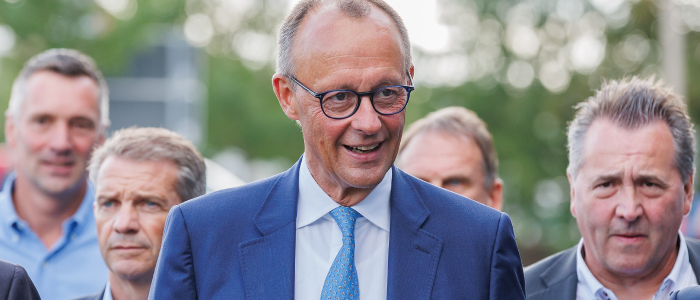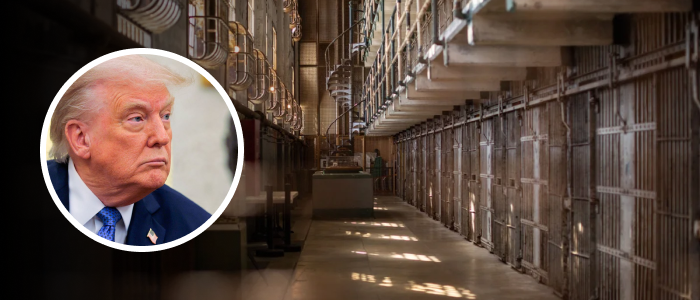Comrade Onyinye-Ghandi Chukwunyere, a lawyer and activist, is the official spokesperson for the African Action Congress (AAC) National Chairman and former presidential candidate, Comrade Omoyele Sowore. In this interview with EJIKEME OMENAZU discusses current issues in the polity. Excerpt: Your party took part in the Edo and Ondo governorship elections.
How do you see tribunal rulings on these elections? The tribunal rulings on the Edo and Ondo governorship elections were, regrettably, a foregone conclusion for those who have closely observed Nigeria’s political landscape. The African Action Congress (AAC) has consistently warned that the judiciary, under the current All Progressives Congress (APC) administration, has been systematically compromised. Reports, including those from civil society organisations like Transparency International, indicate that Nigeria’s Corruption Perceptions Index score was a dismal 25 out of 100 in 2024.

This reflects deep-seated institutional decay. Credible allegations of judicial bribery are proven by the actions of high-ranking officials like the FCT Minister, Nyesom Wike, who have offered judges corrupt incentives such as properties in Abuja and other parts of the country. How can a judge occupying a Wike-donated house render justice in a matter involving Wike? Sadly, the APC’s stranglehold on state institutions, including the judiciary, ensures that electoral disputes are resolved in its favour.
It is an insidious way of undermining the democratic will of the people. This systemic capture of the judiciary is not an isolated issue but part of a broader assault on Nigeria’s democratic framework. The AAC believes that only a radical overhaul of the system—through grassroots mobilisation and a commitment to restoring institutional integrity—can salvage Nigeria’s democracy.
The Edo and Ondo rulings are a stark reminder that the APC has prioritised power retention over justice, and service to the Nigerian people. According to a 2024 Afrobarometer survey, 70% of Nigerians lack confidence in the judiciary’s independence. This statistic underscores the urgency of our call for drastic change.
The AAC remains steadfast in advocating for a Nigeria where the rule of law prevails, and we will continue to mobilise citizens to demand accountability and transparency in the electoral process. With the declaration of a State of Emergency in Rivers State, what is your advice to the Sole Administrator to ensure peace returns to the oil-rich state? Do you foresee him staying beyond his initial six-month tenure? We have stated clearly that the declaration of a State of Emergency in Rivers State and the appointment of a Sole Administrator represent a flagrant violation of Nigeria’s constitution, which vests governance in democratically elected representatives. The AAC unequivocally condemns this move as an illegal power grab orchestrated by President Bola Tinubu and his attack dog, Nyesom Wike, to consolidate control over a geopolitically critical state.
For peace to return, the Sole Administrator must prioritise constitutional fidelity by resigning and allowing the restoration of elected governance. Short of this, any efforts to impose stability will amount to a superficial “graveyard peace,” reliant on coercion rather than genuine reconciliation. Rivers State, which accounts for approximately 25% of Nigeria’s oil production, cannot afford prolonged instability, as it would further disrupt an already fragile national economy.
The AAC recognises that the Administrator’s tenure hinges on the political calculations of Tinubu and Wike, who appear to view Rivers as a linchpin in their strategy to manipulate the 2027 general elections. Given the state’s electoral significance — Rivers contributed over 1.2 million votes in the 2023 presidential election — their machinations suggest a longer stay for the Administrator, potentially extending beyond the initial six months.
However, this approach is unsustainable. The people of Rivers are known for their resilience and will not tolerate indefinite subjugation. The AAC calls for nationwide solidarity with Rivers’ citizens to resist this authoritarian overreach and restore democratic governance.
History shows that imposed administrations rarely endure without public consent, and we anticipate that the people’s resistance will ultimately prevail. Some Nigerians believe that President Bola Tinubu and the ruling APC cannot be defeated in 2027, no matter the type of political alliances across the country. Do you believe so too? The notion that President Tinubu and the APC are invincible in 2027 is a myth peddled by those who benefit from the status quo.
The AAC categorically rejects it. No honest observer believes the APC could win a free and fair election, given its abysmal governance record. According to the National Bureau of Statistics (NBS) Nigeria’s inflation rate soared to 33.
2% in August 2024, unemployment stands at 5.3% (grossly underreported due to informal labor), and insecurity has worsened, with 15,000 kidnappings reported in 2024. Public discontent is palpable, as evidenced by a recent NOI Polls survey showing 78% of Nigerians disapprove of Tinubu’s performance.
The APC’s perceived invincibility stems not from popular support, but from its manipulation of state institutions like INEC and the judiciary, which facilitated the controversial 2023 election outcome. The AAC’s focus is not on predicting electoral outcomes under a rigged system but on mobilizing Nigerians to reclaim their country. We believe the 2027 elections can be a turning point if citizens demand transparency and hold institutions accountable.
The APC’s strategy relies on voter apathy and institutional capture, but history—from the Arab Spring to Nigeria’s own EndSARS protests in 2020—shows that determined citizens can dismantle entrenched powers. The AAC is intensifying grassroots campaigns to educate and organise Nigerians, in order to ensure that the people’s will prevails, whether through the ballot box or, if necessary, organised mass action. Tinubu and the APC are not invincible; they are vulnerable to the unified resolve of our country’s 220 million citizens.
Several Nigerians are convinced that the APC is behind the crises in the opposition parties. Do you believe so too, and why? Without equivocation, let me state that the AAC remains the only credible opposition party in Nigeria today. Other so-called opposition groups have proven ineffective and complicit in their own downfall.
The crises within parties like the PDP and Labour Party are less a result of direct APC interference and more a reflection of their internal weaknesses—opportunism, lack of ideological coherence, and a willingness to compromise with the ruling elite. These parties have failed to mount meaningful resistance to Tinubu’s policies, such as the removal of fuel subsidies, which increased petrol prices by 400% since May 2023, plunging millions into poverty. The AAC, by contrast, has led protests and legal challenges against these policies, boldly demonstrating our commitment to the Nigerian people.
While it is plausible that the APC exploits divisions within opposition ranks, the self-inflicted nature of these crises is evident. For instance, the PDP’s internal squabbles since 2023 have been driven by personal ambitions rather than external sabotage, and the Labour Party’s leadership disputes reflect a lack of organisational discipline. The AAC believes these parties are incapable of challenging the APC’s dominance because they lack the moral authority and strategic vision required.
Our party is focused on building a genuine alternative, rallying Nigerians around a platform of justice, equity, and systemic change, free from the baggage of recycled politicians. What are some of the sore points of the Tinubu administration? The Tinubu administration has presided over an unprecedented decline in Nigeria’s economic and social fabric, leaving our citizens poorer, less secure, and increasingly hopeless. Economically, the removal of fuel subsidies and naira devaluation have triggered hyperinflation, with food prices rising by 40% in 2024 according to the NBS.
According to a 2024 report by the UNDP, over 133 million Nigerians, that is 63% of our population, live in multidimensional poverty, while unemployment and underemployment affect over 40% of the workforce. The power sector remains a national embarrassment, with only 4,000 megawatts generated for 220 million people, despite repeated tariff hikes. Corruption has surged, with Nigeria losing an estimated $18 billion annually to illicit financial flows, according to the EFCC.
These failures have eroded public trust. In fact, about 80% of Nigerians expressed dissatisfaction with Tinubu’s governance in a 2024 Pew Research poll. On security, the administration has been equally disastrous.
Boko Haram, bandits, and kidnappers operate with impunity, with 4,500 deaths and 7,000 abductions recorded in 2024. Education and healthcare are in tatters: 20 million children are out of school and 70% of Nigerians lack access to basic healthcare. The AAC views these as deliberate outcomes of a government prioritizing elite and cronyist interests over public welfare.
Tinubu’s plan to extend this misrule beyond 2027 is a tragedy Nigeria cannot afford. Our party is committed to reversing these trends through policies that prioritise social investment, security reform, and transparent governance, ensuring a Nigeria that works for all, not just the ogas and their thugs. What is being done to ensure that your party has an excellent outing in the coming Anambra governorship election? The AAC is approaching the Anambra governorship election with a strategic and people-centered campaign, confident that our candidate, Ms.
Chioma Ifemeludike, embodies the integrity and vision needed to transform the state. Anambra, with a GDP of $29 billion and a population of six million, deserves leadership that prioritises inclusive growth over elite enrichment. Our candidate selection process is rigorous as we emphasise competence, accountability, and alignment with the AAC’s blueprint for equitable development.
Ms. Ifemeludike’s platform focuses on improving education—according to UNICEF, Anambra has a 20% out-of-school rate—enhancing healthcare access, and boosting local industries like agriculture, which employs 70% of the state’s workforce. We are engaging voters through town halls, rallies, and media campaigns, ensuring our message of hope and transformation resonates across all 21 local government areas of the state.
Our ground game is robust, with grassroots mobilisation efforts targeting the state’s 2.5 million registered voters. We are leveraging digital platforms to reach younger voters, who constitute 60% of the electorate, while maintaining door-to-door outreach in rural communities.
The AAC is also working to ensure a free and fair electoral process, and we’re ready to collaborate with others to ensure that the polls are not rigged. Unlike other parties, we reject vote-buying and thuggery. We rely instead on the power of our ideas and the trust of Anambra people.
If INEC conducts a transparent election, we are confident that our candidate will emerge victorious and usher in a new era of prosperity for Ndi Anambra..
Politics

APC Can’t Win Free, Fair Election With Its Abysmal Record – Chukwunyere

Comrade Onyinye-Ghandi Chukwunyere, a lawyer and activist, is the official spokesperson for the African Action Congress (AAC) National Chairman and former presidential candidate, Comrade Omoyele Sowore. In this interview with EJIKEME OMENAZU discusses current issues in the polity. Excerpt: Your party took part in the Edo and Ondo governorship elections. How do you see tribunal [...]















